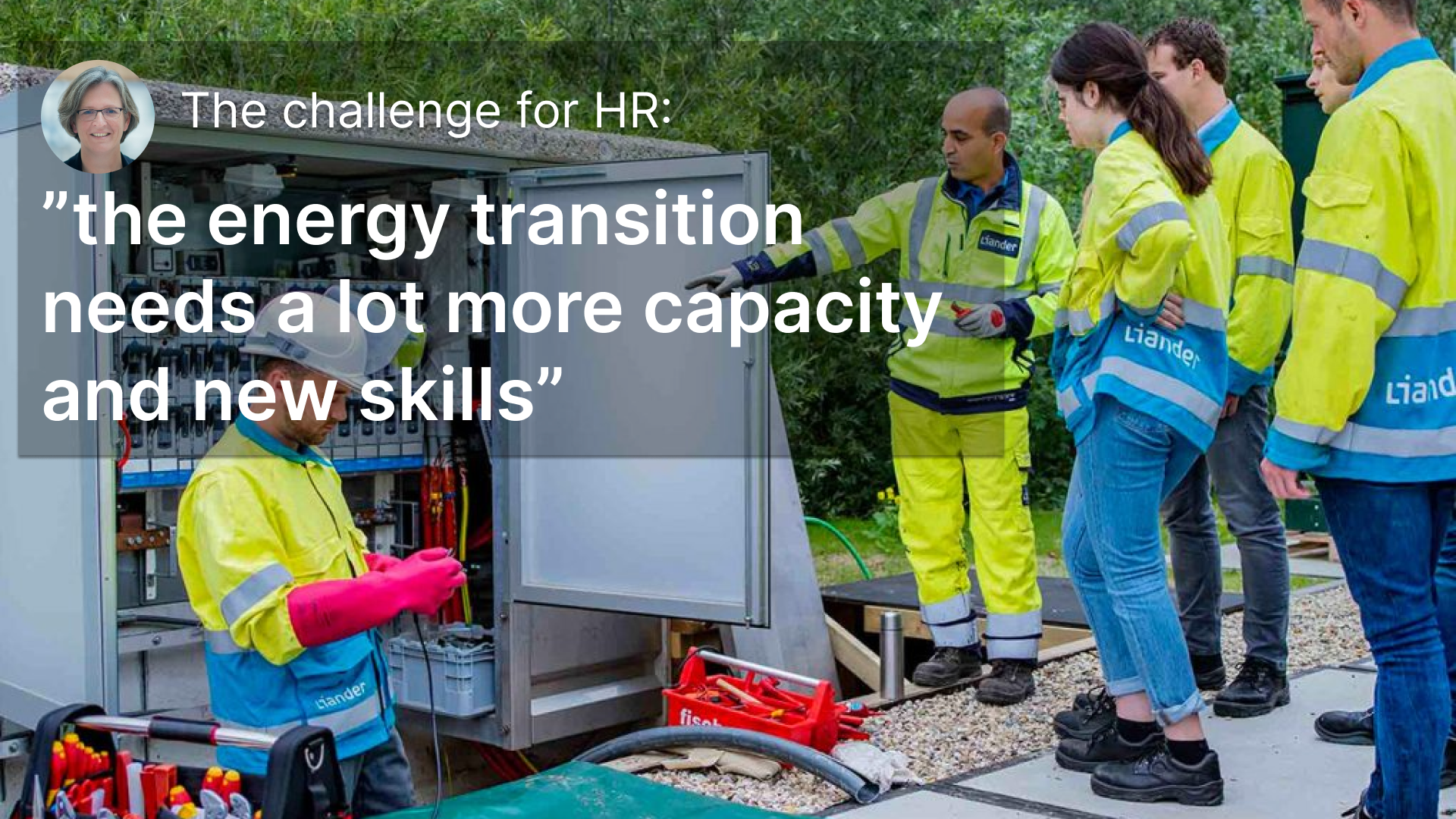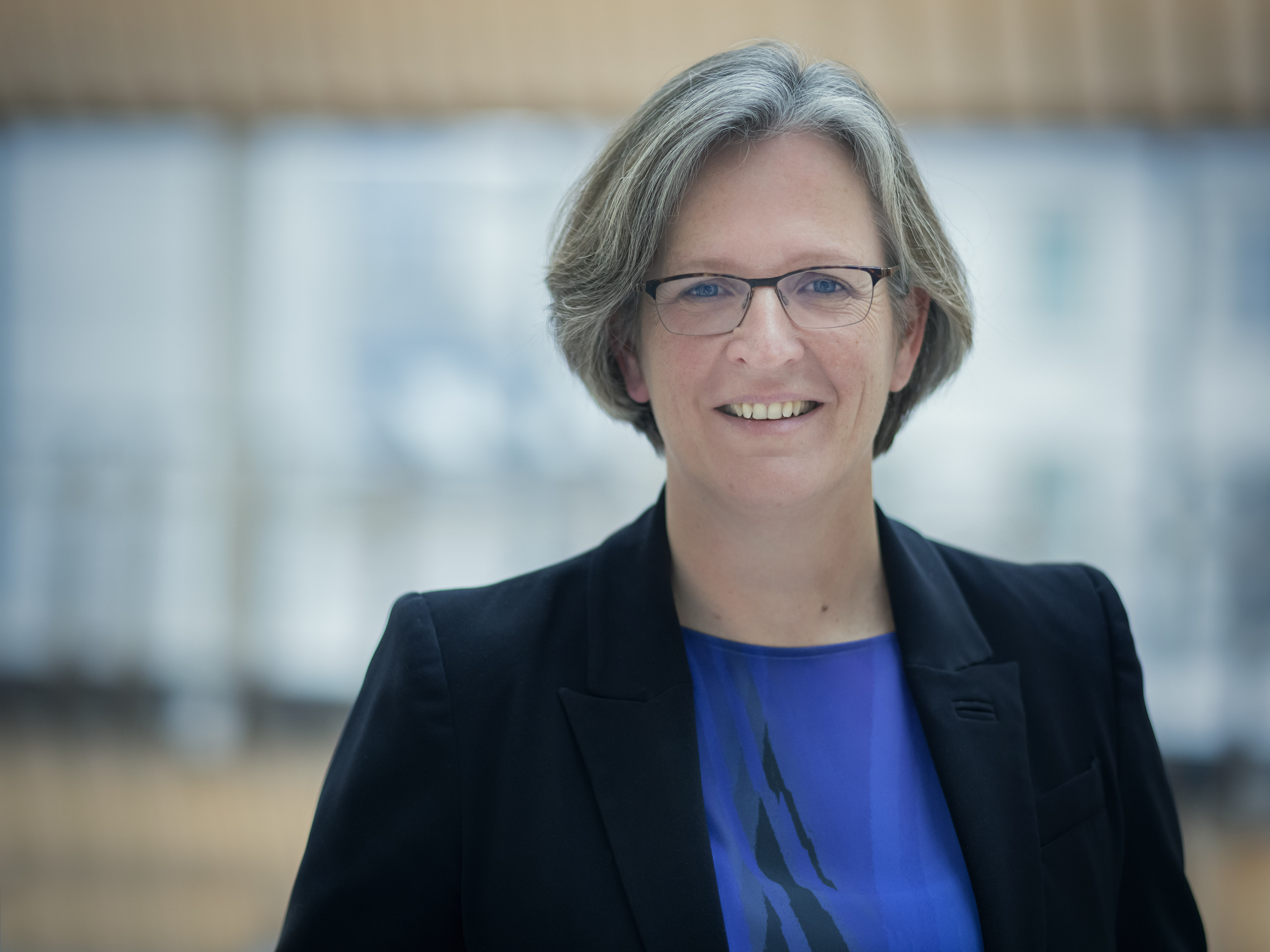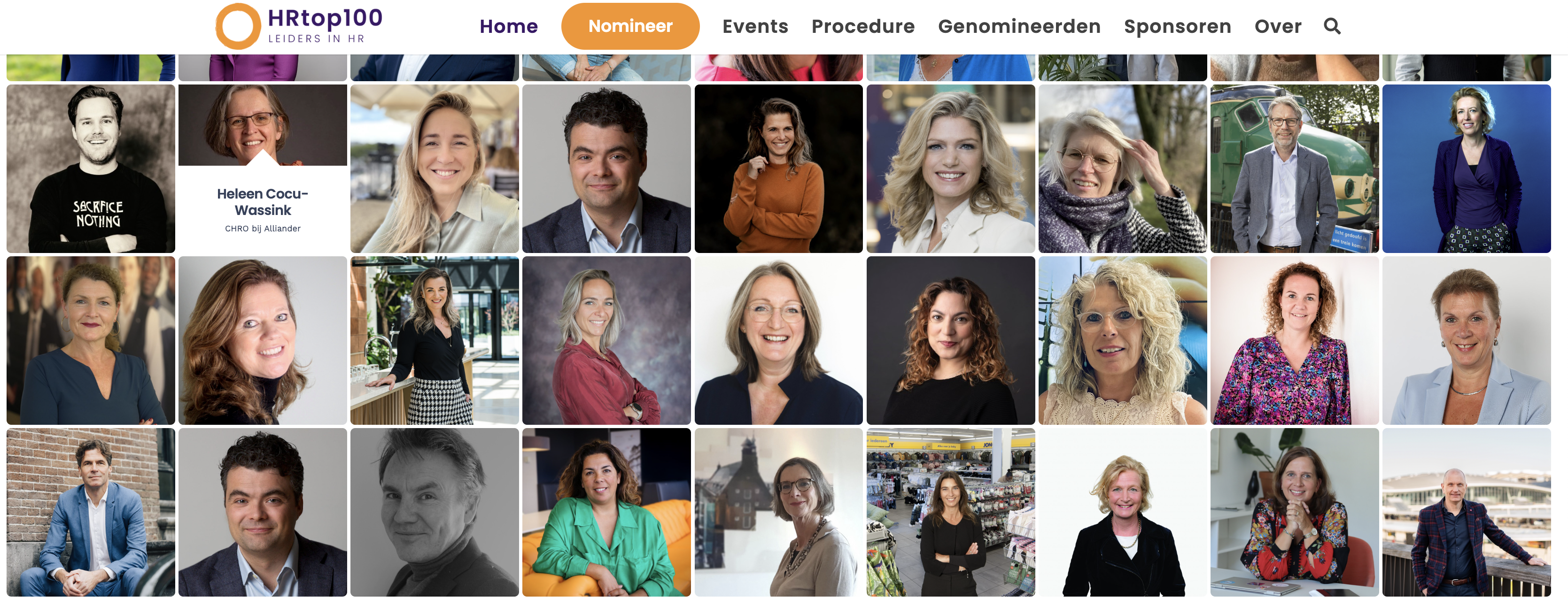Tell us Heleen, what is HR's role to speed up sustainable development?
Heleen Cocu-Wassink, HR Director at Alliander, was recently declared the HR professional of the year in the field of sustainability I interviewed her regarding the HR & Sustainability Manifesto campaign.
Your organization's change capacity is equivalent to your employees' learning capacity. This precedes the uptake of new knowledge and skills.

So, Heleen, you're the first HR professional to win this award. It must be quite an honor?
Absolutely! It's great that our role as HR professionals in sustainable transitions is highlighted and acknowledged. Apparently, people notice that you say what you mean and mean what you say. On the other hand, it's a public award and I have a vast network which gives me an edge. Many others are also doing well.
There's now a platform to speak and shout, to bring more attention to the subject. That's why I'm happy to participate in this interview.
Does such an award directly affect your work?
Definitely, it helps position the energy transition and a company like Alliander. People are increasingly looking for meaningful work. This establishes a beautiful connection between sustainability and employment. We can leverage this in the search for the right people.
What's also nice to see is a kind of pride within my own department. It's not just appreciation for me, but for all my colleagues who strive to incorporate sustainability in the HR field. One colleague said, “I walk a little taller now,” and that brings me joy.
Be honest, is sustainability just a nice thing for you or is it deeply rooted in you?

Subconsciously, it has always been a thing for me. You could say I was born with it, especially because of my mother who was already into sustainability at a young age. She would bring her own bread bag to the baker and also carry a plastic bag to pick up litter when walking the dog. I was also a part of the scouts, where nature conservation was a key activity.
My moment of realization came when I worked in Australia during rampant forest fires. I saw the impact on the lives of my friends and acquaintances. It made the consequences of climate change very personal.
So, we're dealing with an intrinsically motivated HR professional. Nice! Can you talk more about your motivation to work in HR?
I can trace it back to lessons learned in the scouts. There, you take care of the youngest ones. Young children are entrusted to your care. This was very valuable to me. Additionally, I tutored and later taught sailing lessons. Ultimately, I became a rowing coach. So, in many ways, I've always been about developing others and maximizing the potential of individuals and teams.
From rowing coach to...
After my studies, I joined HayGroup. Their motto resonated with me: people before strategy. We worked at the intersection of people, organization, and transformation with the main question being: How do you make organizations fit for people? I worked there for nearly 20 years and thoroughly enjoyed it.
However, eventually, I wanted to get hands-on with organizational changes. So, in 2017, I returned to the Netherlands and joined ASML as the Global Head of People & Organizational Development. Unfortunately, I couldn't really connect with my passion for sustainability there. But now, at Alliander, I'm combining my passions! My biggest challenge is leveraging the organization's potential for transformative processes.
Is it working out?
Most colleagues focus on the existing policy and its consistent application. Even HR business partners, though this is changing, are mainly strategy-focused within the current paradigm. This implies that in many organizations, HR business partners don't fully embrace the core principles of business. It's not necessarily different at Alliander.
But that means you're kind of stuck in the status quo. You must've found a workaround.
In a way, you're bound by existing policies. The primary role of HR is to maintain order within the structured policy. That's why at Alliander, we have a two-track policy for HR: Running and Changing.
"Running" means keeping the house in order within the existing paradigm; "Changing" explores different approaches. For example, how do we address the labor capacity issue in our sector both in numbers and skills, to facilitate a paradigm shift?
The word 'paradigm' has come up a few times. What do you mean by that?
For me, it's 'the existing' or the current way of thinking.
How do you see HR's changing role?
We aim for an inclusive, learning, and high-performing organisation. A place where people want to work while contributing to societal changes. This requires a large influx of new people. Meanwhile, we need to focus on behavior change and upgrading the skills of our current employees. That means allowing experimentation to transform the organization and the sector.
But, how do you change the sector while ensuring safety? You can't risk the safety of working on the electricity and gas network. One mistake, and things could go up in flames or explode.
Through HR policies, you can guide people's behavior. If your strategy is based on sustainability, you can influence actions by focusing on the right KPIs. HR can also facilitate. A good example is a job-matching platform developed to promote professional mobility. It matches based on skills, not just knowledge. This helps attract the right talent to the sector.
How far along are you in the transition?
We're at the tail and left hind leg of the elephant. It's not very far, but it's a significant start. We're collaborating with sustainability managers.
At Alliander, we have a strong Learning and Development department and a corporate school. They're mainly focused on "Running," but they're also pivotal for "Changing." The question we can try to answer is: How do we foster a learning culture that contributes to the sustainable change we're seeking?
Your organization's change capacity is equivalent to your employees' learning capacity. This precedes the uptake of new knowledge and skills.
That's a profound thought, Heleen. It affirms our belief that learning is crucial in transitions and HR plays a central role.

HRtop100 - Dutch leaders in HR, People & Culture
More information about the Dutch HR TOP 100 can be found here: https://hrtop100.nl/
Now the big question: How do we engage HR in societal change? Any tips for your HR peers venturing into sustainability?
Everyone's journey is personal. Start with your own concerns and delve into broader prosperity and sustainability. Consider how your organization can contribute. Find allies, form partnerships, and connect with peers, like the CSR/sustainability manager.
If you can't channel your concerns into action, take the drastic step: leave. It sends a signal not just to your employer but to the market. If that's too big a leap, focus on expanding your circle of influence.
Anything practical?
Start with policy areas where you can make choices, like employment conditions. Make them greener, such as your mobility policy. It's a positive signal that benefits employees and helps attract better talent. It's a small step, but it's about setting things in motion.
Do you also have a success story for your HR colleagues for inspiration?
Together with communications, we have set up an internal campaign. That was not specifically about sustainability at all. It was actually an encouragement campaign to show the successful small steps that everyone makes every day. The campaign puts an end to the idea that you as an individual do not really make a difference.
The campaign called #cando challenges people to come up with their examples. We have depicted these 'small' examples. By bringing them together you see that we are starting a movement together. And that gives energy and removes the myth that innovation should be something very big and compelling.
Every little bit helps and adds up to something big. We just have to start, take the first step, even if you don't know yet what the second will be. You will discover that for yourself!
Hi, my name is Thijs Struijk, I'm an Anthropologist at heart and initiator of the HR & Sustainability Manifesto (www.hrsustainability.com). I advocate for sustainability education, Enabler of Scale and Tempo and negotiated the Dutch treaty “Education for Sustainable Development”. If you have any challenge on changing your organisations’s culture towards sustainability, connect with me on Linkedin
